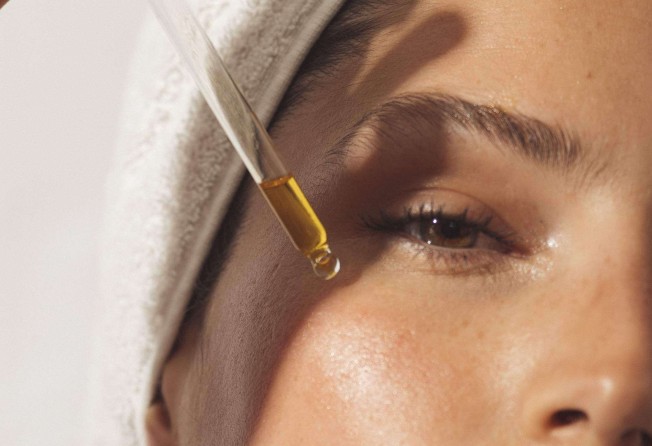
From argan oil to tea tree oil, facial oils explained: their benefits, and how to incorporate them in your skincare routine
- With so many facial products out there containing everything from argan oil to tea tree oil, it can be hard to know which suits your skin, and how to apply it
- From emollients and occlusives to essential and carrier oils, we enlist the help of experts to explain what’s in the different kinds, and what their benefits are

Facial oils are not new to the skincare industry, but many people still shy away from them because of doubts and misconceptions surrounding their uses and benefits.
Can people with oily skin use oils? Do all oils work the same way? Should you apply them to your skin or mix them with other products?
Keep reading to find out the answers to these and other common questions about facial oils.
What are facial oils?

Our skin naturally produces oil – commonly known as sebum – to stay healthy, prevent dehydration and maintain elasticity.
Facial oils are highly concentrated extracts from different plant-based sources that are formulated to work hand in hand with these natural oils to achieve balance in your skin, while adding an extra layer of protection.
“While synthetic and mineral oils are comedogenic [likely to cause blackheads] and clog pores, natural plant oils – when properly extracted and unfiltered – won’t clog pores and can transform your skin,” Valerie Grandury, founder of skincare brand Odacité, says.
These oils can act in one of two ways: as emollients, to add extra moisture to your skin, or as occlusives, to help lock moisture in.
There is a wide range of oils available, each formulated to do different things to your skin: nourishing, restoring, strengthening, replenishing skin cells, protecting your skin barrier, brightening, and so on.
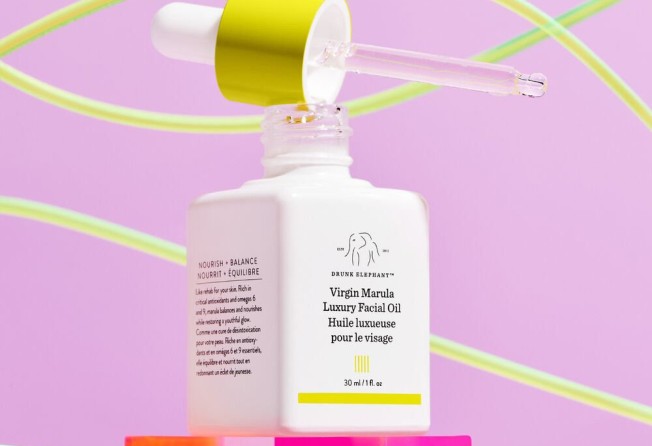
The benefits of facial oils
As a general rule, facial oils can stimulate collagen production, protect against damage from free radicals – caused by things like exposure to UV and air pollution, and alcohol and nicotine use – and help trap moisture in your skin so it doesn’t evaporate.
Our skin needs about 70 per cent water and 30 per cent oil to maintain balance. As we age, it produces less oil every year, compromising the lipid barrier and thus decreasing water retention. This leads to moisture loss and, consequently, a complexion that tends to dehydrate quickly.
Facial oils’ lipophilic nature – their ability to allow fats to pass through and merge with other molecules – helps reload your skin’s lipid layers and avert increased water loss.
However, as beneficial as they can be, they won’t replace your moisturiser.
“Face oils nourish, lubricate and form a protective lipid barrier on the surface of the skin to help keep water in. But since they don’t contain any water themselves, they do not actually moisturise. Use them to help support your moisturiser,” says Jessica Berto, medical aesthetician at Project Skin, a skincare clinic in Vancouver, Canada.
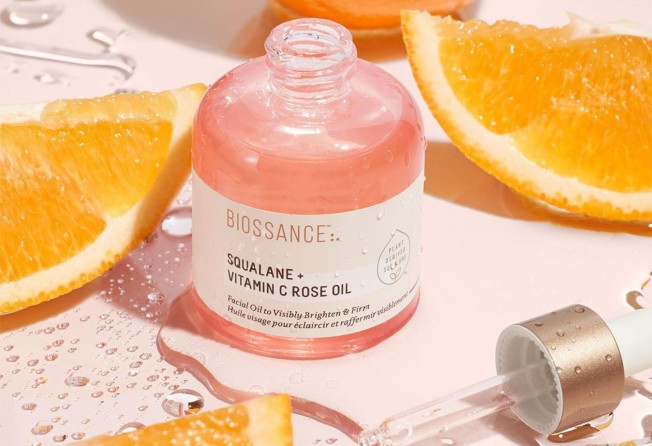
Types of oil
Before deciding from which of the many options to choose, it’s crucial to understand there are two main categories of oil: essential oils and carrier oils.
“Essential oils are a concentrated mixture of natural, volatile, and aromatic compounds obtained from plant material – flowers, buds, seeds, leaves, twigs, bark, herbs, wood, fruit, and roots,” Suzanne LeRoux, founder of skincare brand One Love Organics, says.
They are the purest form of plant extract – the plant in liquid form. However, these don’t look or feel like oils – they’re actually very watery, which is why they evaporate fast.
These highly concentrated plant extracts may be too potent for direct skin contact, so they are mainly used for fragrance purposes in their natural form.
If used for skincare they need to be blended into a carrier oil, which, as the name suggests, helps carry the essential oils onto the skin.
“[Carrier oils] are fats taken from plants – usually from plants’ seeds, nuts, or kernels,” LeRoux says.
“They generally contain components such as fat-soluble vitamins, minerals, antioxidants, and other nutrients that nourish the skin, so they are quite beneficial in their own right.”
You can choose from an array of oils depending on your specific needs and problems, and skin type, but some popular ones tend to work well for most people.
Argan oil
Argan oil is the go-to for many, given its multiple benefits: it is high in antioxidants, vitamin E, and essential fatty acids (EFAs).
This lightweight oil hydrates the skin, diminishes the visibility of fine lines, has anti-inflammatory benefits, doesn’t clog pores, and soothes irritated skin and flare-ups – making it ideal for those with sensitive skin.
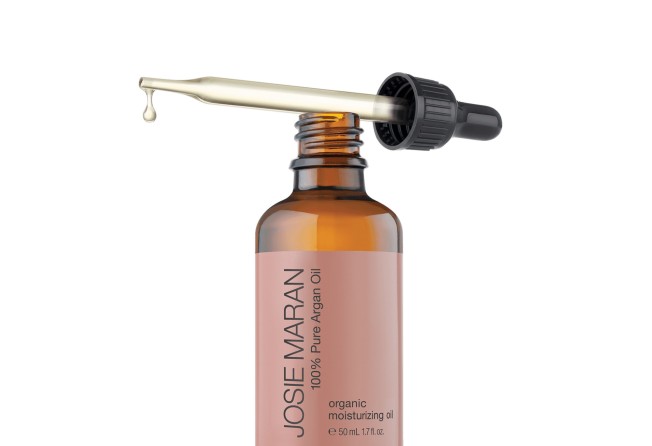
Tea tree oil
Well known for its antiseptic properties, tea tree oil is a great ally to keep your skin’s sebum production under control – the reason it can be found in so many acne-fighting formulas. Its compounds help decrease acne-causing bacteria while soothing irritation and relieving redness.
Tea tree oil is an essential oil, so to apply it to your skin and avoid irritation, it needs to be combined with a carrier oil such as rapeseed or jojoba.
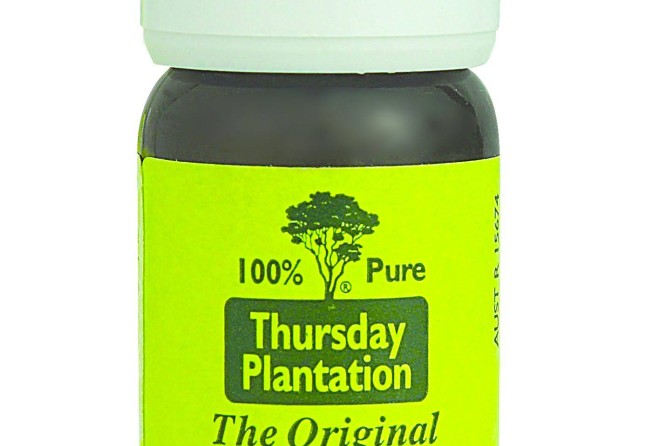
Jojoba oil
With soothing and anti-inflammatory properties, jojoba oil is considered the oil of oils. Additionally, its raw composition is the closest to our skin’s natural sebum, making it ideal for balancing our natural oil levels.
Thanks to its small molecules, jojoba oil is an excellent option for those with oily skin, as it absorbs quickly and doesn’t get stuck on the skin’s surface.
High in vitamin E and antioxidants, this oil plays a crucial role in boosting the regeneration of collagen and elastin – important for the skin’s elasticity – preventing the formation of free radicals and the early signs of ageing.

Rosehip oil
Loaded with antioxidants and phytonutrients commonly found in fruits and vegetables, rosehip oil is a powerful skin barrier partner capable of boosting cell regeneration and collagen production and reducing acne scars, skin burns, and post-inflammatory hyperpigmentation – a condition in which some areas of the skin turn darker than others.
Packed with essential fatty acids, vitamin A and vitamin C, rosehip oil can help diminish fine lines and even out skin tone, while also brightening and hydrating the skin.
Bio-Oil
While most oils are extracted from natural sources, some popular ones are synthesised in speciality labs. One of them is Bio-Oil, formulated to lessen the visibility of acne scars. It’s also used to buffer lines and diminish superficial hyperpigmentation.
Its main ingredients include calendula, rosemary, lavender, and camomile, which contain powerful ingredients such as vitamins A and E.
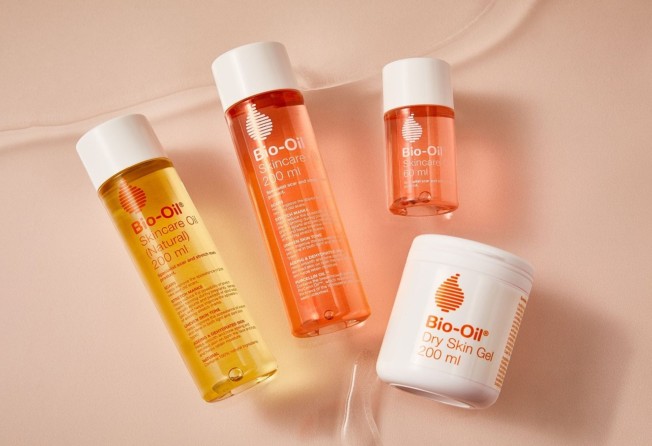
Lavender oil
Lavender is well known for helping people to relax through its scent, but it can also benefit your skin. Lavender oil has mild antibacterial and antifungal properties, soothing effects on the skin, and can aid scar healing.
However, lavender oil can be highly irritating for those with sensitive skin, and some studies link its use to disruption of the skin barrier, so it should always be blended with a carrier oil before being applied to the skin.
How to use oils properly
Generally, you should layer the products in your routine based on their consistency, beginning with the lightest and ending with the densest.
Keeping in mind that oil and water don’t mix, you should always apply oils last in your routine, otherwise water-based products won’t be absorbed by the skin since the oil will repel them.
For a hydration boost, mix oils into your moisturiser or apply a few drops to your palms, rub your hands together and gently press your hands to your skin to lock in moisture.
While oils are generally beneficial when applied at any time of day, some oils may reduce the effectiveness of your sunscreen – so it’s recommended to apply them at night.